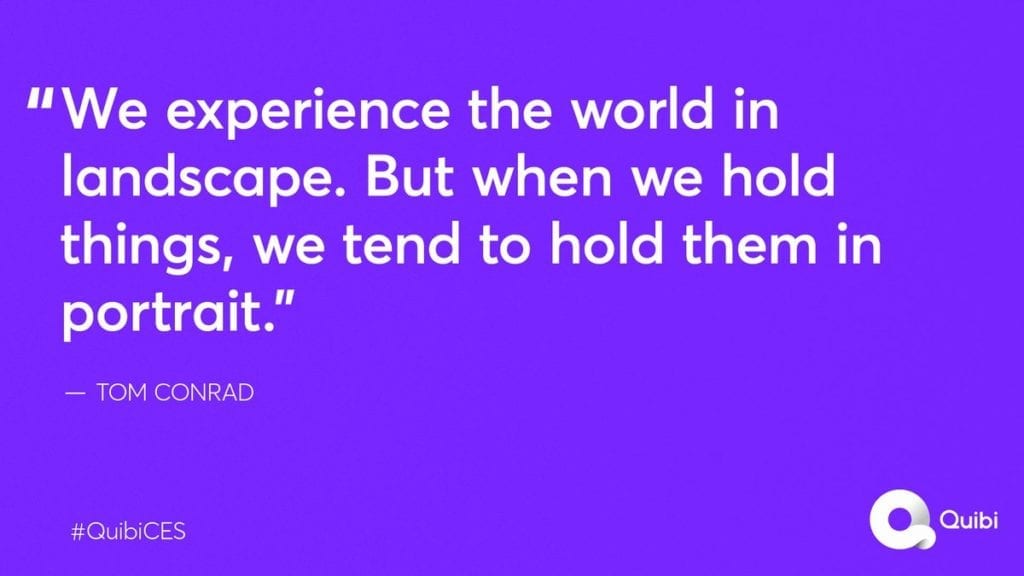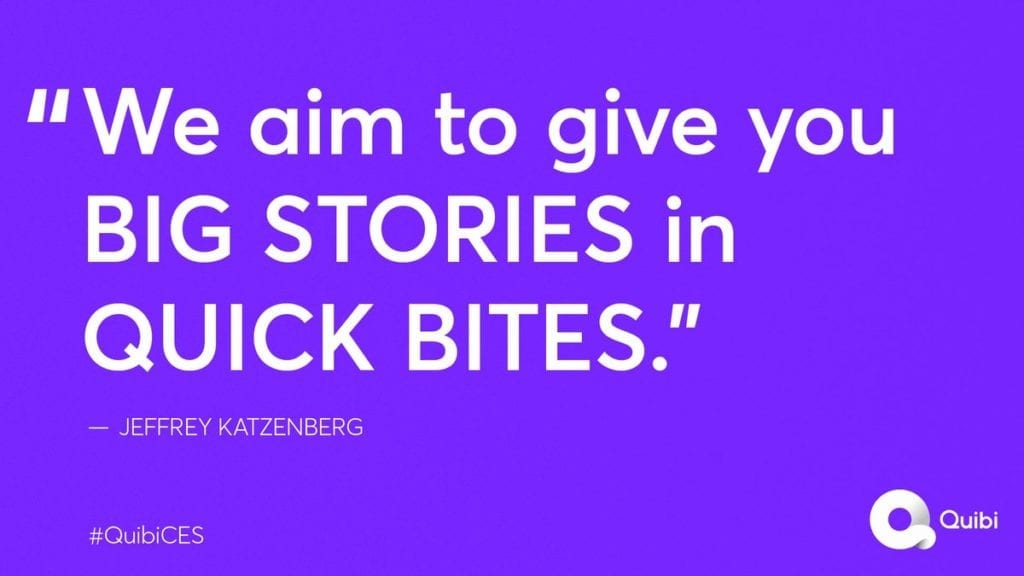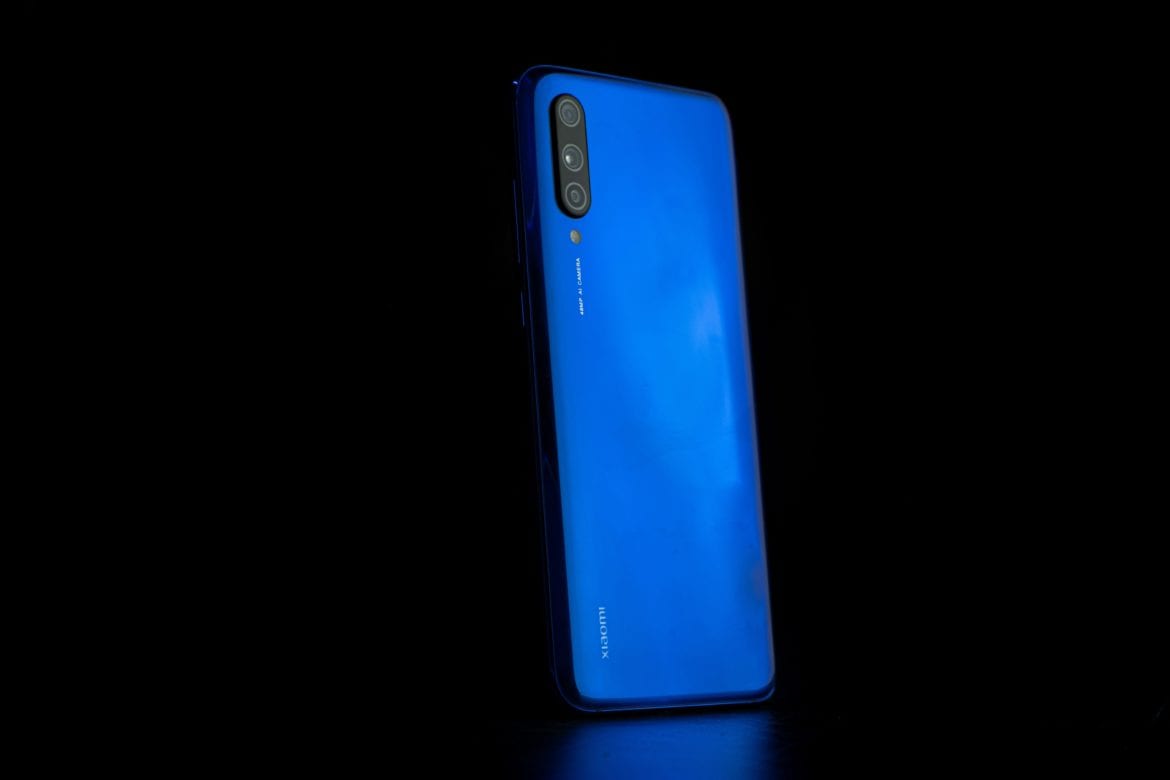|
Getting your Trinity Audio player ready...
|
A new subscription-based mobile video streaming service is rolling out, with exclusive shows from Hollywood A-listers including directors like Steven Spielberg, Guillermo del Toro, Sam Raimi and actors like Reese Witherspoon, Jennifer Lopez, and Bill Murray.
The company has also signed up news publishers including the BBC, NBC, CBS, and ESPN among others, to produce daily news shows.
No, it’s not Apple TV+.
This new service is called Quibi. It has raised $1.4B in funding backed by a large group of investors including Disney, WarnerMedia, Alibaba and Viacom. In October, the company announced that it had already sold out its $150M advertising inventory for the first year.
“Not shrinking TV on phones”
Quibi, which stands for “quick bites,” aims to distinguish itself by focusing exclusively on the mobile viewing experience.
The service takes a different approach compared to the other major streaming players. It will stream short episodes of programming for mobile users on the go. The episodes will run under 10 minutes and include a mix of entertainment and news.
We’re not shrinking TV on phones, we’re creating something new. The very first entertainment technology platform optimized for mobile viewing, with quick bite content created by Hollywood’s top talent.
Meg Whitman, CEO, Quibi
Quibi founder and former chairman of Walt Disney, Jeffrey Katzenberg and CEO Meg Whitman unveiled the app’s features at the recent Consumer Electronics Show in Las Vegas. They offered a behind the scenes look into the vision and technology driving Quibi.
“Unlike anything creators have had before”
The app uses a new technology (patent pending) it calls “Turnstyle,” which allows the viewer to seamlessly move between portrait mode viewing and landscape viewing. And there won’t be any black bars filling the rest of the screen when the phone is switched from portrait to landscape video. According to Katzenberg, it “is unlike anything creators have had before.”
The technology does not entail just cropping a landscape video for the portrait mode. Creators deliver two different edits for every video. Which means viewers can get different perspectives when they are watching in either mode.
Below is a clip from Quibi’s upcoming thriller show Nest which shows how Turnstyle can be used. When the user’s phone is in landscape mode, it looks like any other TV show. But when its put in portrait mode, viewers can see what’s on the character’s phone screen.
While it appears gimmicky, it can make for an interesting storytelling technique, something that can be utilized by news shows and documentaries to create a more intimate and dynamic narrative.
“Just step one”
But turning the phone is not the only way Quibi will leverage mobile. Steven Spielberg is making a horror show called “After Dark,” that will use viewers’ locations to allow watching only after sunset. “I’m talking about, in real time, the phone telling the piece of content, what time it is, what the weather is, what the lighting conditions are, and letting the piece of creative react to that in the same way the creative reacts to the rotation of the phone,” said Tom Conrad, Chief Product Officer, at Quibi.
Other features include a vertical scrubber that allow users to pick segments from their news programming.
“I think the user experience is very unique here, and it’s what will be differentiated for us in addition to the content,” comments Whitman. Katzenberg and Whitman are banking on Turnstyle to to make it easy for users to consume content on the go.
These are the users who fill their spare minutes on social networks or messaging while commuting, or waiting in queues, or walking the dog. The company will also be monitoring and analyzing user behavior to deliver content.

According to TechCrunch’s Sarah Perez and Anthony Ha, “In the future, Quibi’s filmmakers could tap into other mobile sensors and smartphone features, like the GPS or the haptics to make the phone vibrate.
“They could tell stories through the phone’s messaging system, or even have your phone ring as part of a story. An exercise-themed show could tap into the phone’s pedometer for an interactive experience. Turnstyle, in other words, is just step one.”
The company is using these innovations to position Quibi as a next-generation streaming hub.
The “secret sauce”
Quibi’s programming will be built on three tiers of content: star-studded “lighthouse” productions; mid-tier “quick bites”; and news-focused ‘daily essentials.’
Katzenberg told The Verge that he considered daily essentials as the “secret sauce” that would provide curated daily information in a quality way, from trusted sources, in an effort to create regular viewing habits.
“The world today is overwhelmed by video information, but its not curated and it certainly isn’t convenient. Our ambition is to do both. Our ‘daily essentials’ will deliver to you the day’s news and information from the best sources and valued brands in a unique format that can actually only be found on Quibi,” said Katzenberg at the CES 2020.
We’re partnering with some of the most trusted names in news and information to reimagine how news can be delivered for the millennial generation, telling you everything you need to know and why it matters. And it’s all delivered in 5 to 6 minutes quick bites so you can stay up to speed on weather, news, sports, you name it, even horoscope.
Jeffrey Katzenberg, Founder, Quibi
Among the news publishers that have signed up with Quibi, NBC News will produce two exclusive national news shows every morning, and two every evening. They will feature dedicated editorial, hosts and correspondents from NBC. The BBC will host a global news show at 12 noon each day. TMZ will deliver celebrity news twice a day, while ESPN will cover sports among others.

Quibi plans to release three hours of new content every weekday to build a daily viewing habit among users. It will include one chapter of a movie, five episodes of its TV shows, and 25 ‘Daily Essentials.’ The company is set to roll out more than 175 original shows and 8,500 episodes in its first year.
Online streaming revenue projected to reach $30.4B by 2024
The streaming service will enter a highly competitive market that has had several big names entrants in 2019. A recent Quartz report found that at the beginning of 2019, there were 235 streaming services operating in the US alone.
According to the report’s author Dasia Moore, “there are only a handful of true giants. Netflix, Hulu, Amazon Prime, and HBO have dominated the US market for years. 2019 brought new competition.
“Hollywood finally focused on streaming, with Disney, NBCUniversal, and AT&T’s WarnerMedia announcing new services. Apple also launched its streaming service, AppleTV+.” However, there is still room for growth.
When Netflix began its streaming service just over a decade ago, no one believed it could end the DVD industry, hit a market cap that rivals those of major Hollywood studios, or compete for and win major industry awards. But it did all of those things. The industry it ushered in now brings in $24 billion dollars and is only expected to grow.
Dasia Moore, The future of the global video streaming war
1.1B users accessed on-demand video subscription services in 2019, according to the report, and the projected revenue by 2024 is $30.4B.
Eyes on future
A production studio executive told Digiday earlier that what Quibi is trying to do, “is not without challenges. But it goes back to what is the creative vision? What’s the insight that they’re seeing? How are they sidestepping the failures of others?”
According to Tim Peterson, Senior Reporter at Digiday, “Quibi and others investing in original short-form programming, like Netflix and Amazon, may legitimize the format similarly to how HBO, FX and others validated television as a medium of the same caliber as film.”
We’re no more competing with them [streaming giants] than Spotify is competing with them. What we’re doing is taking what is a tried-and-true form of consumption and now offering people a premium version of it.
Jeffrey Katzenberg, at the Banff World Media Festival
Samuel Roberts, TechRadar’s Senior Entertainment Editor writes, “It’s true that entertainment is still bound by the laws of broadcast TV, to a large extent. The accepted norm of sitcoms being about 30 minutes long and dramas about an hour long is still the case for a lot of the shows on Netflix and Amazon Prime, even if variable runtimes are permitted on those services.
“Will audiences always want to watch TV that’s of this length? Quibi has its eyes on a future where they don’t, and it’s not hard to see why. Compare the slow-paced dramas that dominate modern TV to the shorter form internet video we watch, and it’s easy to see how traditional entertainment might begin to change around our viewing habits.”
Quibi is aiming for 20M users across the next five years, according to the FT. It will be launching in the US on the 6th of April with two subscription models: $4.99 per month for programming with ads, and $7.99 per month for an ad-free version. Updates are available at its website.
The full CES 2020 keynote on Quibi can be watched here:


